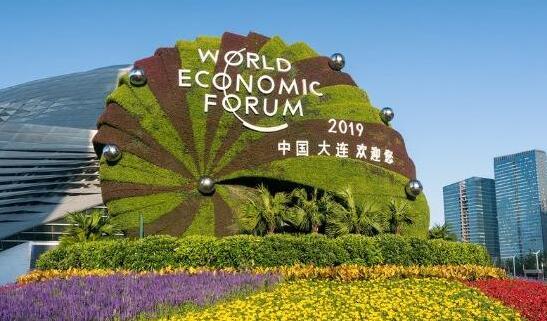DALIAN, July 3 (Xinhua) -- As business people, academics and politicians around the world gather for Summer Davos in northeast China's city of Dalian, China reaffirmed its commitment to globalization with renewed pledges to free trade and opening up.
Participants to the event welcomed the move of the world's second-largest economy.
"In 2019, the risk has gone up, not down," said Zhu Min, chairman of the National Institute of Financial Research and former IMF vice president, identifying the rising risk of a no-deal Brexit and its effects on financial markets as a major factor.
"The world needs more globalization, not less," said Klaus Schwab, founder and executive chairman of the World Economic Forum, in his introductory remarks to the forum.
China has delivered the message of globalization in WEF for years.
The efforts were highlighted in a number of discussions about technology, economy, and policy this year. Industry insiders and experts welcomed China's deeper integration into the global economy and expect more cooperation.
"Clearly, China is a critical part of international supply chains," said Lex Greensill, co-founder and CEO of London-based financial service provider Greensill.
In a January forecast by New York-based research company eMarketer, analysts predict China is set to become the world's largest consumer of goods by the end of this year with total retail sales of 5,074 trillion U.S. dollars, exceeding that expected for the United States.
To further open up its market, China unveiled a series of measures, including a shortened negative list for foreign investment, enhanced protection of intellectual property rights and improvement of the business environment.
Yuan Ding, dean of China Europe International Business School, said the moves showed the principle of reciprocity, as in recent years more Chinese enterprises have also been making footprints overseas.
The country's globalization path has been recognized and followed in other parts of the world.
"Infrastructure as a forward-looking driver of economic development is something that an increasing number of countries in the region [Asia] adopted," said Joachim von Amsberg, vice president of the Asian Infrastructure Investment Bank.
Hannah Ryder, CEO of Development Reimagined, a Beijing-based consultancy that is building links between African and Chinese entrepreneurs, said China had built the infrastructure that connects Africa to the rest of the world with roads, bridges and rail.
"China is an important partner to enhance globalization and enhance Africa's globalization in particular," said Ryder, who is from Kenya, adding that the continent's exports were still relatively small and that it wants to be part of the globalization story.
"There is an opportunity for China to help Africa improve its trading relationship with the rest of the world," Ryder said. "China can import more, but also set a good example for other large countries to see Africa as an important importing partner."




 A single purchase
A single purchase









